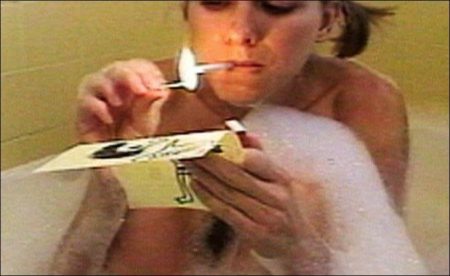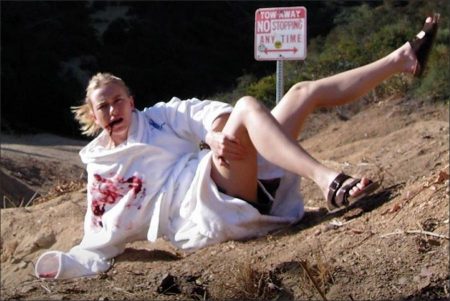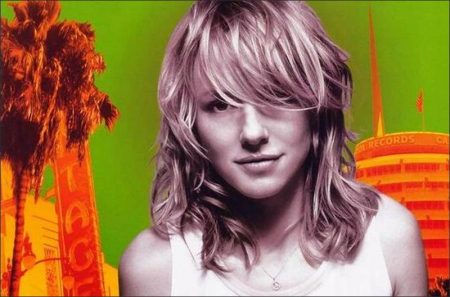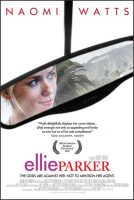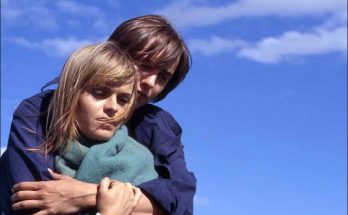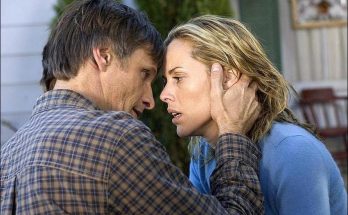About the Production
Ellie Parker Movie Trailer. Five years ago, actor and director Scott Coffey took a small consumer-grade (purchased from Best Buy with a credit card) one-chip digital video camera and made a 16-minute film about a young actress struggling with identity in Los Angeles, shape-shifting from one character to another as she hurtles through the Los Angeles freeway system from one audition to another. Coffey and Naomi Watts shot for three days and the resulting short film ended up in the Short Program of the 2001 Sundance Film Festival.
Coffey “wanted to capture the fragmentation of this giant metropolis that I was living in. I always wanted to capture the bizarre existence most people experience in LA, living in their cars, alienated from each other in their cubes of steel. Also, the main character being an actress functions as a metaphor for modern living.”
With these themes in mind, the feature was shot over four years, in between jobs that Coffey had writing screenplays, and Watts shooting many movies and becoming a leading actress that she is known as today. Coffey shot the film on digital video because he “felt that DV captured the glaring, sometimes punishing light of Los Angeles perfectly. Also, DV expresses fragmentation better than any other way of filmmaking. It’s a pleasure to be so close with the actors, to be on their laps, in their faces.
Shooting on a consumer hand-held camera heightens the immediacy and intimacy of the piece. I liked to think of the camera as an extension of the Ellie’s nervous system. Audiences are familiar with the DV aesthetic, from reality television, so it was fun to play with this form. That said, nearly everything in “Ellie” was scripted and me and Naomi rehearsed quite a bit.”
Coffey says the style and visuals were very deliberate, even though they appear to be accidental. He says he “love[s] this seeming contradiction.” Watts recalls, “this was of making films is dearest to me because Scott and I could capture the intimacy of the filmmaking process like no other kind of filmmaking can do. It’s really a kind of freedom that most actors have never experienced. I felt really safe with Scott he is one of the best actor’s directors I’ve ever worked with. He was able to challenge me in a really inspiring way”
Coffey recalls, “It was kind of scary to see my hand-made movie go to such a huge festival like Sundance because the film was made in an opposite way than festivals like that are becoming, so the film has to be protected like a newborn doe. It was just me and my editor, and Naomi and a few other actors on shooting days, and now, thousands of people will be judging it, analyzing it.” This is different with “Ellie Parker” than for most directors, because it’s so close to Coffey. There was no corporation, not one financier, not one producer, no wardrobe, no props – during the shooting, 99% of the time, it was just a crew of one — Coffey.
“So it’s fragile – not made of steel and timber and rivets like most Hollywood features; it’s made of rice paper, balsa wood, paper mache, scotch tape and spit. It was made with human hands – there are no machines under the surface – and I left the film so that the viewer could see the hems still, so the viewer can feel Naomi and I there on the that day, our relationship, how much we trust each other, and how much we cared about what we were doing.” Watts, becoming famous because good reviews at Cannes, always went back to the project for these specific reasons. “It’s art with Scott and I were working together. Not once did we think about film festivals and money and distribution; we worked together purely for art’s sake.”
One of the strangest occurrences to happen during the making of this film was Watts becoming a huge movie star, Coffey recalls, “when before she was just the star of my short film. She always worked as an actress and she was never starving, but it was scary and thrilling at the same time to see her rocket to fame and million-dollar paychecks. I’ve seen fame happen to people before, but in this case, it was faster and more insane than I’d thought possible.”
Though there are obvious benefits and downsides to Watts becoming a “star” during this several-year-long process, Coffey says, “what happened to Naomi was good for my film, but I know that it could be dangerous, too. She could have just stopped shooting and it was definitely harder to find free days. And movie stars have a way of eclipsing their projects — whether they intend to or not – but luckily, Sundance and the independent film community is great at re-focusing the light back on the director. I can’t say there’s not a part of me who wishes that people had seen Naomi in my film first (many did, with the shorts, but not a lot), because I think she’s funnier and more poignant in “Ellie Parker” than she’s ever been before.” Watts agrees, saying, “I love the chance to be goofy and funny in “Ellie Parker” because this was the first time most people ever saw this side of me, and it’s a side I really cherish.”
“Ellie Parker” has taken on many, many incarnations since it began as a 16-minute short film that Coffey and Watts shot in two afternoons. After the short in 2001, the project evolved into a cable series for Showtime and HBO that turned out not to be, but Coffey is thankful “because that would have made the feature impossible.” The final incarnation of the project captures what Watts says is Coffey’s “original vision to make our project into a feature-length film.” Just a few days after finishing a rough cut, it was accepted into dramatic competition at the 2005 Sundance Film Festival, so as Coffey remembers, makes “all the failures, and all the potential lawsuits were worth it… in retrospect.”
Coffey recalls, “a lot happened in my life during the shooting including two loved ones – his mother, Gaye Pope (the former assistant to David Lynch), and one of his best friends and supporters, Jennifer Syme (who plays a casting director and Ellie’s boyfriend’s mistress), died. So, the film, in addition to exorcising demons from an acting career, bookends a long and good period in Coffey’s life bookends a period of Watts’ life also.
Ellie Parker (2005)
Directed by: Scott Coffey
Starring: Naomi Watts, Chevy Chase, Scott Coffey, Mark Pellegrino, Fanshen Cox, Rebecca Rigg, Jennifer Syme, Marcel Sarmiento, Robbi Chong, David Baer, Blair Mastbaum
Screenplay by: Scott Coffey
Cinematography by: Scott Coffey, Blair Mastbaum
ilm Editing by: Matt Chesse, Catherine Hollander
Music by: Neil Jackson
MPAA Rating: PG for fantasy action and peril, and some language.
Distributed by: Strand Releasing
Release Date: November 11, 2005
Views: 171
